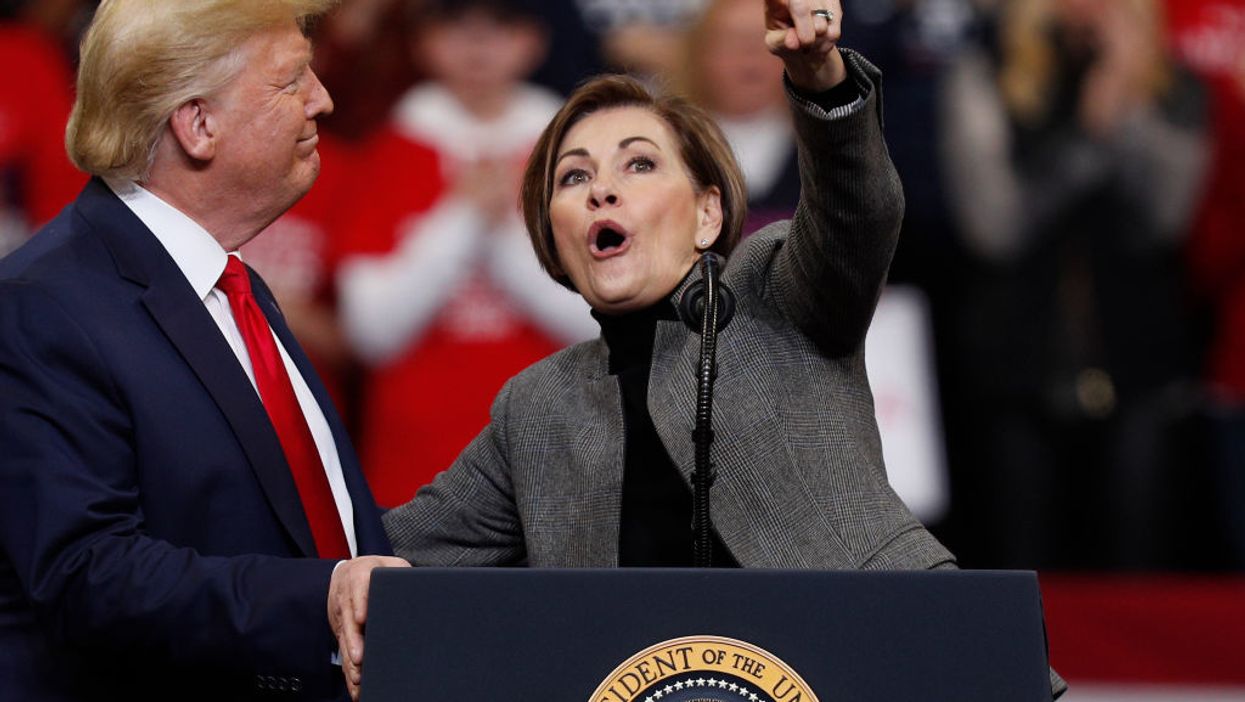Pressure is building for Gov. Kim Reynolds to quickly fulfill her promise to restore voting rights to Iowa's convicted felons in time for the general election.
On Thursday, one month after the Republican governor promised such an executive order, county election administrators urged her to hurry up — because otherwise it might not be possible to make the bureaucratic changes before the November vote.
The details of her proclamation could shape the civic future of as many of 60,000 Iowans who have finished prison terms for felonies. The state is the only one that permanently denies the franchise to all felons, at a time when expanding their political rights has been a top cause of civil rights groups.
"These changes cannot happen overnight," said the letter to the governor from Roxanna Moritz, the president of the state Association of County Auditors, the officials who run elections in Iowa.
Not only will mailings, instructions to poll workers and government websites need to be altered, she said, but "this policy should be supported by outreach and education to inform potential voters of their eligibility" so they can register by the Oct. 24 deadline, 10 days before Election Day.
"It will be out in plenty of time prior to the election," Reynolds vowed in a radio interview Wednesday, saying her staff and state attorneys are meeting with various groups to gather input.
She also signaled she would take victims into account by keeping the lifetime ban on voting for those convicted of murderer, rape and other violent crimes.
The county officials said they favored a blanket decision, because administering registration based on criminal statutes would be too difficult.
They also asked Reynolds to not require felons to repay any fines or restitution before voting again. The auditors said figuring out how much the ex-felons owe and collecting that money would be too complicated and time consuming.
That echoes arguments central to the most prominent felon voting move in the country, in Florida, where the restoration of rights for several hundred thousand ex-convicts has been halted by a state law requiring them to make good on all their financial obligations to the government. Critics say that amounts to an unconstitutional poll tax, but this week the Supreme Court decided not to intervene — at least not before the state's August primary.
Reynolds had supported a constitutional amendment restoring voting rights, but that proposal stalled last month in the GOP-controlled General Assembly. Legislators did pass and the governor signed, however, a bill to require felons to pay restitution to victims if they ever get their voting rights back. A payment plan would still be allowed for fines and court costs and would not delay voting rights restoration.
But it's not clear if that law would apply to changes made through executive order. The law specifically states its requirements kick in only upon passage by the voters of a constitutional amendment restoring felon voting rights.
The issue has gained fresh attention during this summer's national reckoning with racism, in particular the racial inequities in law enforcement. A disproportionate share of the nation's prisoners are Black and Latino, and allowing them to fully re-enter society after their release is being hailed as an overdue step toward justice.
During a rally in June at the Capitol in Des Moines, Black Lives Matter activists presented a list of five demands, one of which was the executive order the governor then promised. Members of the group have pressed her for quick action ever since.




















